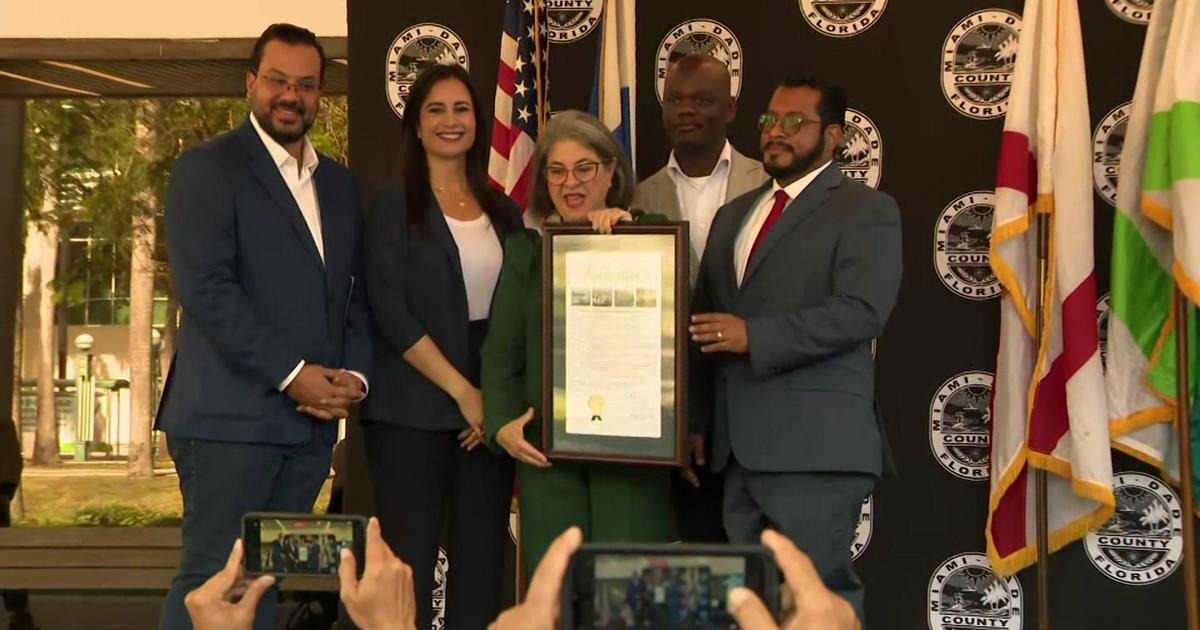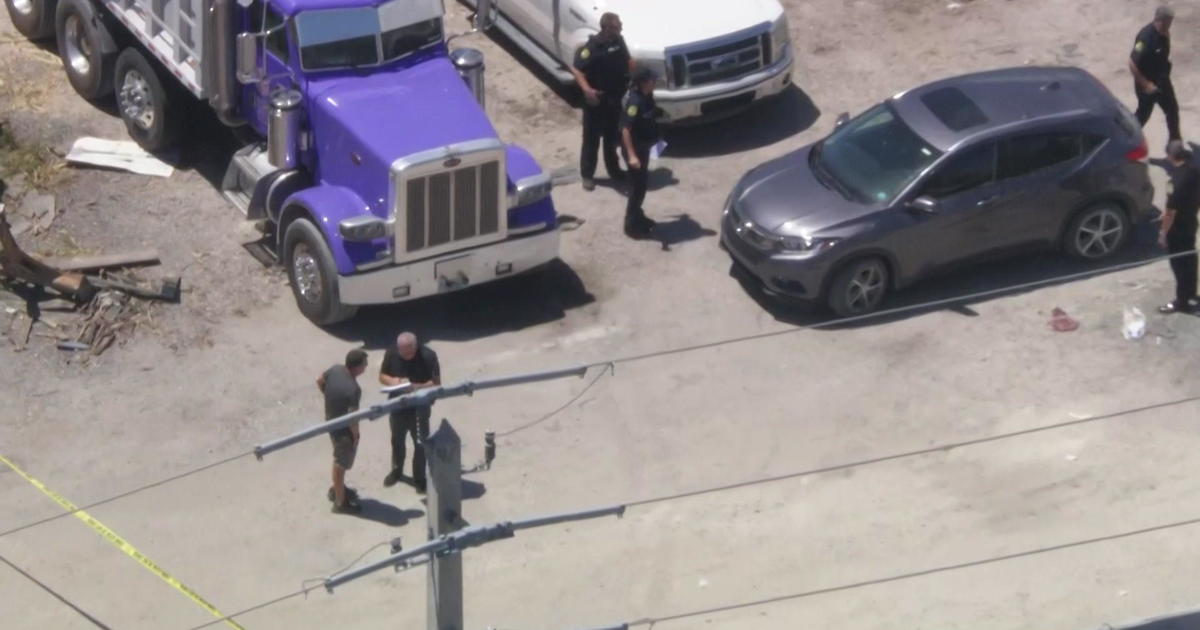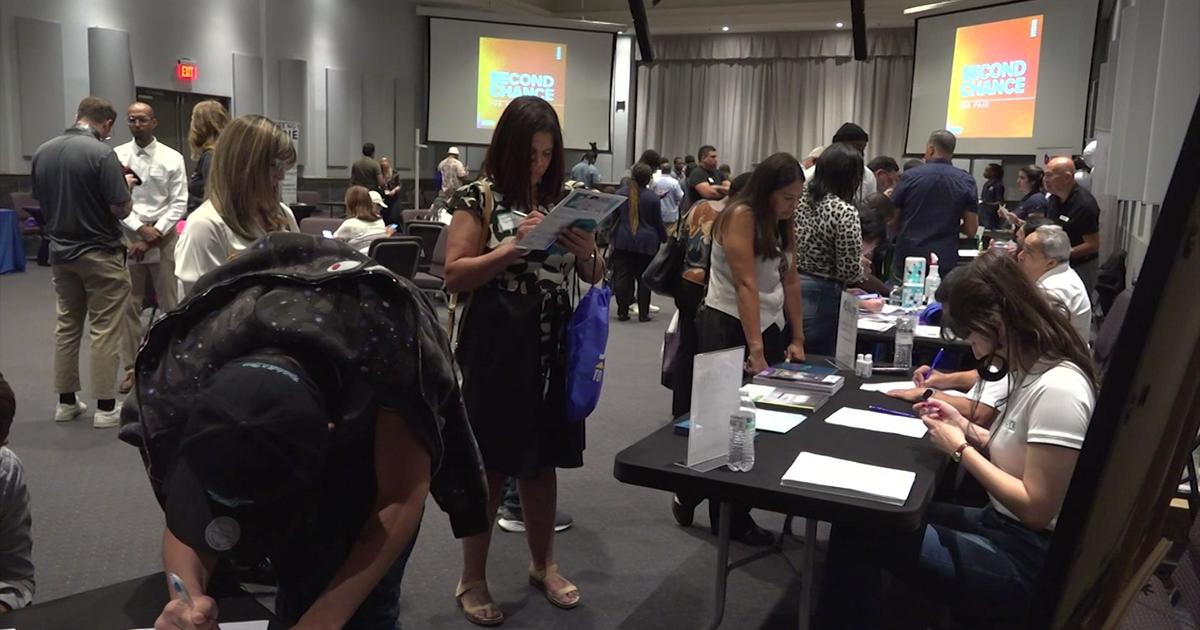Florida Prepares For FEMA Airlift Of Hurricane Maria Victims
Follow CBSMIAMI.COM: Facebook | Twitter
MIAMI (CBSMiami) – The Federal Emergency Management Agency (FEMA) is offering to airlift victims of Hurricane Maria in Puerto Rico to the U.S. mainland to reach temporary housing and many of those hurricane victims are coming to South Florida. It is a complex operation would be the first of its kind for the agency.
Glenda Bonilla Colon is one of the people desperate to flee the island. She has spent more than 40 days in shelters.
"I really need to go to the states where I was born," she said crying. "I don't want to stay here anymore."
Hurricane Maria heavily damaged Elsie Ortiz's home.
After a month living in a shelter, the 74-year-old was approached by FEMA with a chance to make her way to Fort Lauderdale while her home is being repaired.
Three thousand Puerto Rican's remain in shelters there, and now FEMA is doing something unprecedented; offering to airlift Puerto Rican residents to Florida and New York.
Under FEMA's Transitional Shelter Assistance (TSA) program, displaced residents and families who are still living in shelters on the island can opt to relocate to housing in Florida and New York. The agency is working with the governors in both states to work through logistical issues for families interested in participating.
Florida Governor Rick Scott on Thursday directed the Florida Division of Emergency Management to activate the State Emergency Operations Center to Level 2 in response to FEMA'S TSA program.
In a statement, Gov. Scott said, "With more than 140,000 Puerto Ricans having arrived in Florida following Hurricane Maria, I have directed the Florida Division of Emergency Management to upgrade the activation status of the State Emergency Operations Center. This will ensure that local, state and federal agencies are all working together and enhance the delivery of resources at the state's Disaster Relief Centers at Miami and Orlando international airports as they prepare to assist more families with services like crisis counseling, educational resources, job placement services, medical services and help getting housing and drivers licenses. This direction will also facilitate greater planning and support a more efficient and coordinated response as we respond to the needs of these families."
Mike Byrne, a federal coordinating officer for FEMA, said the TSA program is the first time the agency has attempted what it calls an "air bridge," or a relief operation requiring the transportation of individuals from a disaster area. In most disasters, FEMA pays displaced residents to stay in hotels under the TSA program. In Puerto Rico, the hotels are filled to capacity, so FEMA is turning to the mainland and working with states to find accommodations.
"We've never done an air bridge before, for this program, and we have to take the time to set it up because the last thing we want to do is put people on a plane and have them arrive at an airport and not have the kind of wraparound services to take care of them," explained Byrne.
Byrne says the level of interest in the program so far has been low. Out of 300 families interviewed, only about 30 showed interest in participating.
FEMA says it will work with interested residents and families to develop a comprehensive plan of action before sending them to the mainland, including transportation to and from the airport and coordination to keep families together once they reach the states. FEMA would pay for the flights to and from the mainland.
The extent of the devastation on Puerto Rico continues to hamper efforts to restore power, clean water and basic necessities to residents who remain on the island of 3.4 million Americans. Damage from the storm could eventually total $90 billion, and FEMA has said it has distributed more food and water than any other disaster it has been involved in.
Thousands of evacuees have fled Puerto Rico on their own accord. More than 100,000 evacuees have fled to Florida, with 1,300 Puerto Rican students enrolling in schools in the Orlando area alone.
Miami-Dade and Broward schools have enrolled dozens of students too.
Miami-Dade and Broward schools have enrolled dozens of students too.
The Florida Puerto Rican Chamber of Commerce has been helping individuals and families transition to South Florida directing them to schools and health care.
"We predict a large number coming to South Florida in the airlift because Central Florida is saturated," says Luis de Rosa with the chamber.
"Miami-Dade and Broward have the infrastructure," he said.
However de Rosa says the biggest challenge for evacuees who choose to stay in South Florida will be finding affordable housing.
Rafael Ortiz moved from Puerto Rico to his mother s house in Miami two weeks ago.
The trained engineer says he lost everything in Hurricane Maria.
"I saw the roof of the house go up and the trees come down," he said.
But Ortiz has landed a job in Broward County and has no intention of returning back to the island.
He says evacuees can look forward to a lot of help when they arrive in South Florida.
"They are gonna be better because the government is not helping out [in Puerto Rico]," he said.



